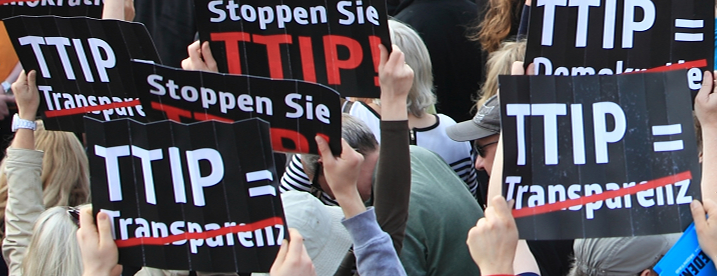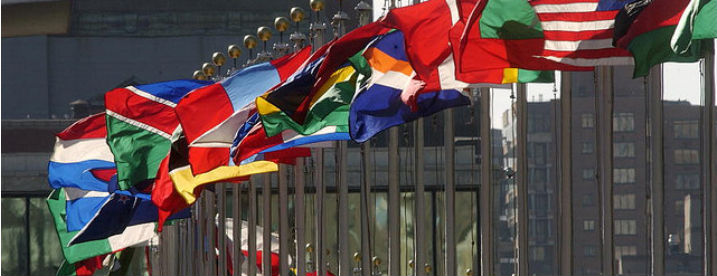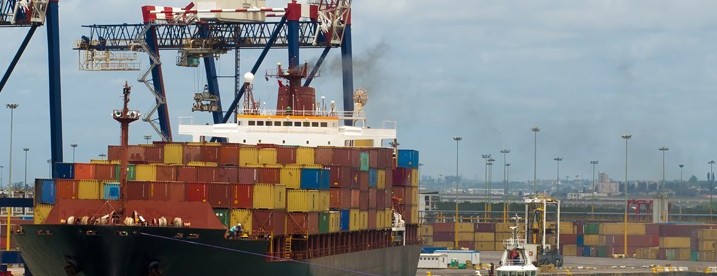By Michele Fletcher, June 30, 2014

This week’s optimistic hubbub surrounding the Swiss-Indian information exchange seemed to mark a new beginning for Swiss transparency and a major breakthrough in India’s hunt for black money. Unfortunately, little happened: Switzerland admitted only the amount of money Indians had stashed in Swiss banks and rejected requests for information regarding specific account holders.
Despite the media’s rude awakening when the Swiss revealed that accountholder information would remain confidential, this result should not have been surprising. A quick look at the Swiss attitude towards information exchange—especially automatic exchange of information, the OECD’s biggest step towards financial transparency—shows that the media’s optimism was premature. Instead, India’s request to Switzerland should be viewed as a litmus test of the Swiss attitude towards the future of banking secrecy.
By Grace Zhao, June 30, 2014

Tax abuse has a significantly negative effect on the enjoyment of human rights.
It is a large issue that is not often associated with humanitarian causes. Often tax abuse is perceived to only impact those on the extremes: the super rich and the miscellaneous rogues who run a money-laundering scheme out of their basements.
Yet secrecy jurisdictions, tax evasion, transfer pricing, and offshore bank accounts all contribute to increasing income inequality regardless of legality. Such inequality skews political power, which then has an undeniable impact on the availability of basic human rights to food, water, and shelter.
Tax abuse is not simply a clandestine activity, rather it is also actively sanctioned by governments through secrecy jurisdictions and other moves such as corporately lobbied tax holidays, both of which contribute to increased inequality and deeper poverty. This then violate the principle that governments should maximize efforts to provide basic human rights.
By Michele Fletcher, June 26, 2014

Last week, Namibian activists raised concerns about transfer pricing in Africa’s extractive sector in an open letter to De Beers. Their letter comes at a critical time in which transfer pricing and tax havens have contributed to an exorbitant amount of capital flight from developing countries. Namibia’s economy is hugely dependent on the extractive sector, particularly in diamond exports, which alone account for 10% of GDP. With increased scrutiny into transfer pricing just across the border in South Africa’s platinum mines, these Namibian activists have delivered a timely, earnest demand to investigate transfer pricing in their own country.
Multinational corporations (MNCs), especially those which operate in Africa, are coming under increased scrutiny by governments, media, and the public over their bookkeeping and payments to governments. The extractive sector in particular has been the focus of new regulations on financial transparency: an extremely positive development, but one which has so far missed an opportunity address larger issues concerning abusive transfer pricing and how MNCs of all sorts conduct their fiscal operations.
By Michele Fletcher, June 20, 2014

The Transatlantic Trade and Investment Partnership seeks to unite U.S. and EU markets: a gigantic trade deal uniting over 800 million consumers across the United States and the European Union, and yet all its important documents remain shielded...
By Grace Zhao, June 20, 2014

Capable and effective institutions and the rule of law benefit all sustainable development goals.
This is one of the arguments brought up by a number of NGOs, including Global Financial Integrity, in an open letter to the UN’s Open Working Group. Scroll down to read the open letter.
The Open Working Group is a 30-member group of the General Assembly of the UN that is responsible for preparing sustainable development goal proposals. As the deadline for the Millennium Development Goals approaches, an action plan for post 2015 has started. The Open Working group was established in January 2013 to draft a series of objectives for the post 2015 development agenda.
The Open Working Group has proposed 17 Sustainable Development Goals to be obtained by 2030, one of which is Goal 16.
By Grace Zhao, June 18, 2014

Apple, Starbucks, and Fiat should prepare to pay their fair share of corporate taxes.
Last year, a U.S. Senate investigation accused Ireland of giving Apple special tax treatment. EU Antitrust Commissioner Joaquin Almunia has now gone further, initiating a probe of these large firms to determine whether the companies’ tax deals with Ireland, the Netherlands, and Luxembourg involve illegal state aid.
The investigations specifically examine the companies’ method of “transfer pricing”. Transfer pricing is simply the accounting practice by which one part of a multinational company charges another part for goods and services to distribute profits between jurisdictions. For large corporations such as Apple, Starbucks, and Fiat, the problem lies in the use of loopholes and creative interpretations of transfer pricing rules to artificially shift profits to countries where there are lower taxes or better tax breaks.
By Tom Cardamone, June 16, 2014

GFI Calls for the Adoption of a Sustainable Development Goal (SDG) Aimed Strictly at Halving Illicit Financial Flows from Trade Misinvoicing by 2030
Since the beginning of the year, the UN’s Open Working Group (OWG) has been wrestling with a nearly herculean task: to winnow a set of roughly 200 suggested Post-2015 sustainable development goals (SDGs) down to about a dozen. The process will culminate with the list being presented to the UN General Assembly (UNGA) during its annual meeting in September. The UNGA will then have one year—until the next UNGA meeting—to consider and, perhaps, amend the list. By September 2015, the international community’s roadmap toward sustainable development will be set in stone for the next 15 years. Simply put, there is a lot riding on what the OWG does in the next three months.
The current list of potential OWG recommendations covers the gamut from reductions in corruption to significant improvements in clean water, education and health care. While Global Financial Integrity (GFI) is pleased to see that the OWG has included a target to reduce illicit financial flows (IFFs)—which are estimated at close to $1 trillion annually—we believe the language as currently drafted is flawed.
As written, the IFF target (goal 16.3) is coupled with numerous other issues—including reductions in organized crime, human trafficking, and drug smuggling—making it unwieldy, unmeasurable and, as a result, unachievable. We believe a concise SDG target on IFFs will have a far greater chance of being proposed by the OWG and approved by the General Assembly.
By E.J. Fagan, June 13, 2014

A few weeks ago, we wrote on this blog that New York Regulator Benjamin Lawsky was demanding that top executives at BNP Paribas be fired as part of their settlement deal for violating U.S. sanctions and money laundering rules during settlement negotiations. Today, The Wall Street Journal reported that Lawsky was successful:
BNP Paribas has tentatively agreed to oust a senior adviser at the French bank at the behest of New York’s top financial regulator as part of a proposed settlement of BNP’s alleged violations of U.S. sanctions, according to people familiar with the matter.
Benjamin M. Lawsky, who runs New York’s Department of Financial Services, requested the bank remove Vivien Lévy-Garboua, the people said. Mr. Lévy-Garboua has served as head of compliance and internal controls for BNP in North America and currently acts as an adviser to senior bank officials.
It is pretty typical for the bank’s chief compliance officer to be fired after a scandal like this. News reports have the eventual total at ‘at least a dozen’ executives, so we’ll see if the discipline goes farther up the food chain. BNP has announced the symbolic early retirement of Chief Operating Officer Georges Chodron de Courcel, who was expected to leave at the end of the year. No one should mistake that for real discipline, however.








